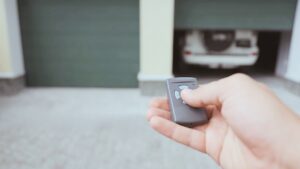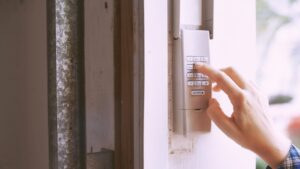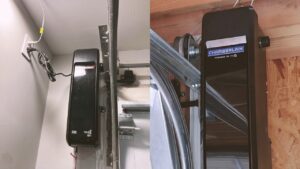Connect With A Garage Expert
Connect with local experts, Compare quotes, Get the best price.
After a tiring day at work, the last thing you’d want is to come home to the grating sound of a screechy garage door. This is why understanding how to make garage door quiet is crucial, not just for your peace of mind but also to maintain a harmonious neighborhood.
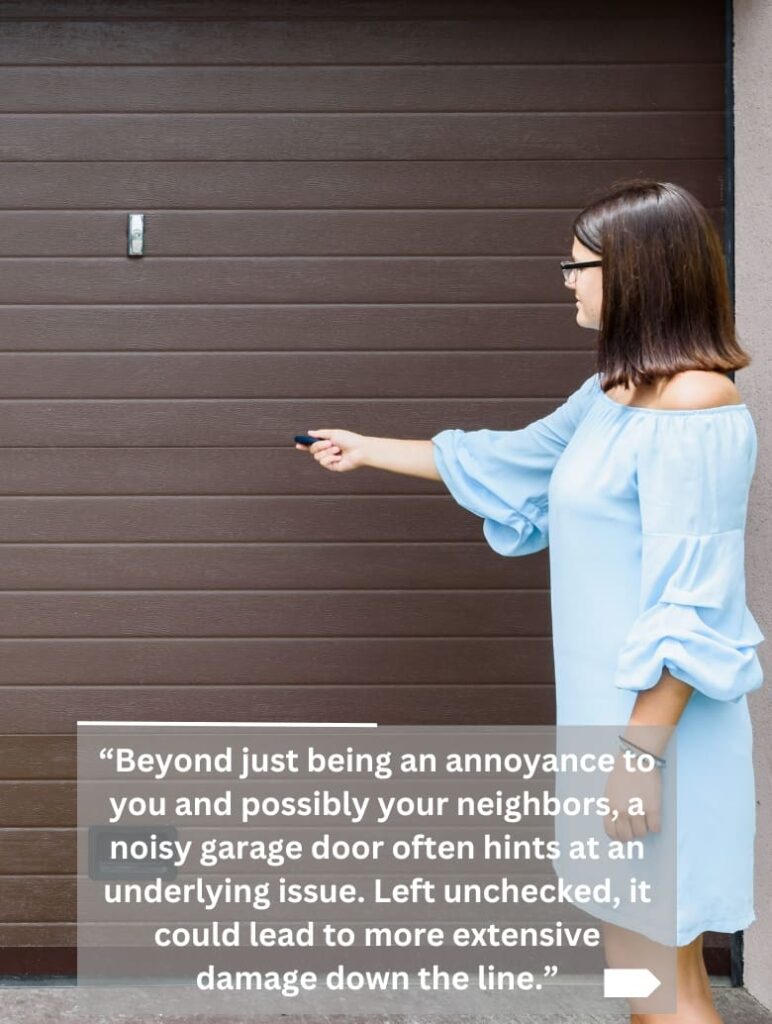
Beyond just being an annoyance to you and possibly your neighbors, a noisy garage door often hints at an underlying issue. Left unchecked, it could lead to more extensive damage down the line. But don’t worry! We’re here to guide you on how to silence that garage door.
In this guide, we’ll take you step by step to ensure your garage door functions seamlessly and silently.
What Causes a Garage Door to Be Noisy?
Noisy garage doors often wake up your family members who are sleeping if you come home late at night. Therefore, fixing and making it silent is important. But before that, you must understand what causes that garage door noise in the first place.
Loose Parts

Loose nuts, bolts, or chains can cause a medley of unsettling sounds. These loose parts rattle or vibrate against other components, making an irritating noise. This problem is just one of the common issues with garage door functionality that homeowners encounter.
Fortunately, you can easily resolve this issue by regularly inspect your garage door for loose parts and tightening any loose pieces to ensure they’re snug.
Connect With A Garage Expert
Connect with local experts, Compare quotes, Get the best price.
Worn-Out Rollers
Garage door rollers bear the brunt of the door’s weight as it moves. Over time, however, they wear out and cause the door to shriek or vibrate.
While all garage door rollers wear down eventually, you can prolong their lifespan through regular lubrication.
However, once the rollers have worn out, you’ll need to call a garage door professional to replace them.
Improper Garage Door Installation
An improperly installed garage door is a nuisance.
It’s not just the annoying noise; poor installation can lead to ongoing mechanical issues and damage to springs or other parts.
In such cases, the best option is to call a credible garage door professional to install your garage door properly.
Poorly Lubricated Garage Door Parts
Poor or infrequent lubrication of your garage door results in grating, squeaking, or clinking noises.
You can eliminate the irritating garage door noise by generously applying quality lubricant on rollers, hinges, and springs. Doing so also ensures that your garage door will operate smoothly.
Imbalanced Garage Door
If you hear scraping or loud banging noises from your garage door when opening it, your door is most likely imbalanced.
Knowing how to balance a garage door is crucial in these situations, as it can prevent further damage and restore smooth operation.
An imbalanced garage door is a safety concern as it puts too much strain on various parts, including the garage door opener. In such cases, the garage door will likely break and cause serious injury.
You’ll need to call a professional garage door repairman to fix the issue.
How To Make Your Garage Door Quiet?
Now that we’ve discovered what’s making your garage door noisy let’s talk about how to resolve these issues and quiet your garage door.
But before moving on to the steps, gathering the tools you’ll need is important:
Tools Required
To make your garage door glide smoothly and silently, you’ll need the following tools and supplies:
- Silicone or lithium-based lubricant (specifically made for garage doors)
- Stepladder
- Gloves
- Rag (for wiping away excess lubricant or dirt)
Upgrades (Optional)
Upgrade to Teflon or nylon rollers if you’re tired of frequent lubing. They’re quieter and require less maintenance than traditional metal rollers.
Upgrade to a quiet garage door opener specifically designed to operate with minimal noise, reducing the need for regular adjustments.
Tips Before Starting
Before diving into your garage door fix-up, consider the following tips to ensure a safe and efficient DIY fix:
- Disconnect the garage door opener from the electrical outlet for safety.
- Test the door manually to identify specific noise issues.
- Always wear gloves and eye protection, especially when dealing with springs or other tension-loaded parts.
- If your garage door has a built-in locking mechanism, ensure it’s disengaged so you don’t get stuck midway.
- Use the stepladder for better reach, but make sure it’s stable.
- Watch a how-to video for a visual guide.
- Don’t hesitate to call a professional if any step feels out of your skill level. It’s better to be safe than sorry.
How to Make Garage Door Quiet DIY Guide
Now that you’ve got your tools and considered all important tips for safety and efficiency, you’re all set to make that garage door as quiet as a whisper. Let’s dive in.
Step 1: Install Garage Door Silencer
First, let’s tackle the loud bangs by installing a garage door silencer. This foam or rubber accessory attaches to the door’s panels, absorbing the vibrations.
Follow the steps below to install a garage door silencer:
- Start at the top of the door and peel off the adhesive backing.
- Now press the strip onto the panel.
- Work your way down, making sure it sticks firmly. This reduces the vibrations, meaning fewer cringe-inducing clunks.
Step 2: Upgrade to a Quieter Belt Drive Opener
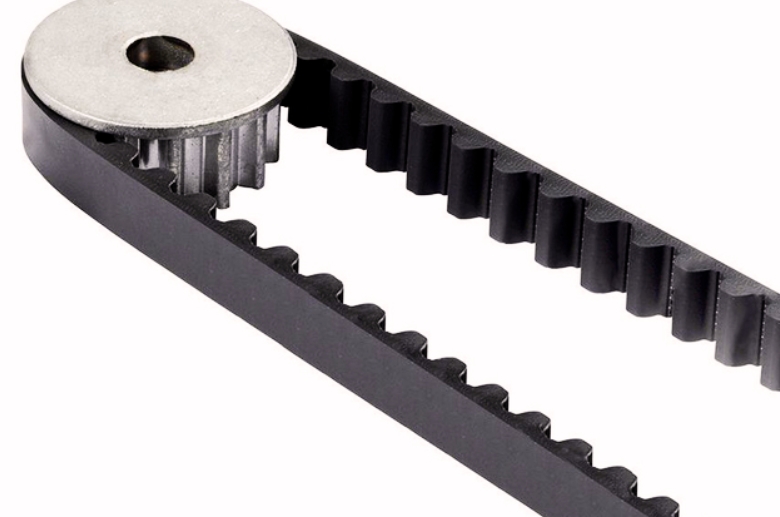
Still got a rattle? Swap out your old chain drive for a belt drive opener. This upgrade significantly reduces noise.
Follow the steps below to upgrade your belt drive opener:
- Unplug the old opener.
- Disconnect it from the bracket and remove it.
- Attach the new belt drive in the same spot.
- Plug it in and link it up to the existing mounting bracket.
Note: Remember to follow the manufacturer’s instructions.
Step 3: Install Nylon Rollers
Metal rollers are a big no-no if you’re looking to make your garage door silent. Choose nylon rollers instead. They create less friction and noise.
Install the nylon rollers by following the steps below:
- Using a pry bar, gently lift the garage door until the first roller is lined up with the opening where it’s installed.
- Slip it out and replace it with a nylon roller.
- Lower the door.
- Lift it again to position the next roller.
- Repeat the process for the second roller.
Step 4: Replace the Weather Strip
Check the bottom of your garage door: If the weather strip looks worn out, it’s time for a new one.
Replace the weather strip by following the steps below:
- Pull the old strip out of its track.
- Clean the area.
- Slide in a new weather strip until it fits tightly.
- Make sure it’s evenly distributed along the length of the door to eliminate gaps that let in noise and weather.
Step 5: Add Soundproof Insulation
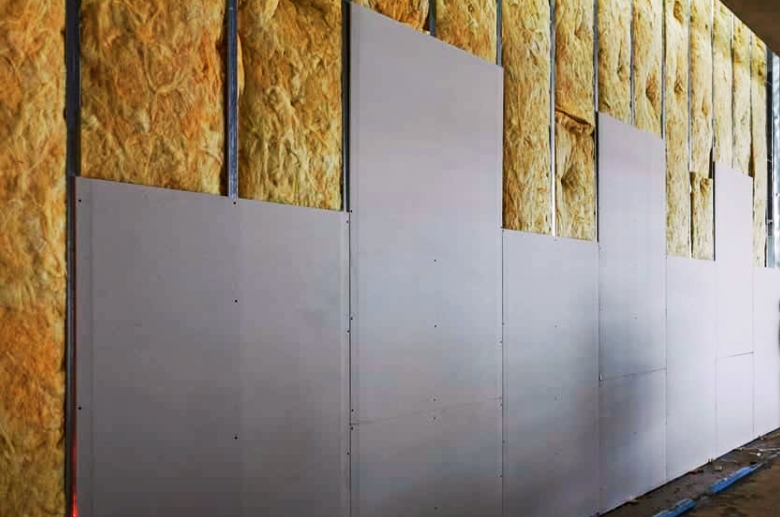
Your garage walls can amplify noise. That is why you should add soundproof insulation to minimize the noise.
To add soundproof insulation, follow the steps below:
- Stick adhesive-backed foam sheets or acoustic panels on the walls.
- Fit them snugly and ensure there are no gaps where sound waves can bounce around.
Step 6: Tighten Nuts and Bolts
Follow the steps below to tighten the nuts and bolts of your garage door:
- Carefully examine the nuts and bolts around the door frame and tracks using a socket wrench. Nuts that wiggle are your primary targets.
- Turn them clockwise to tighten.
- Ensure they’re snug, but avoid over-tightening to prevent stripping.
And there you have it! Follow these steps, and you’ll make your garage door so quiet, you’ll forget it’s even there. It may take a bit of elbow grease, but it’s well worth the peace and quiet you’ll get in return.
Connect With A Garage Expert
Connect with local experts, Compare quotes, Get the best price.
Why is My Garage Door Shaking When It Opens or Closes?
A shaky garage door isn’t just noisy; it’s a sign something’s wrong.
Usually, garage doors are shaky because the hardware is loose or the door is not balanced. When nuts and bolts aren’t tight, the door rattles in its track. On the other hand, an imbalanced door (often caused by worn-out springs) strains the opener and causes the entire mechanism to shake.
A lack of lubrication can also cause your garage door to shake. When parts aren’t well-oiled, they grind together, causing more friction and instability.
Lastly, damaged rollers often wobble, throwing off the smooth operation and causing the garage door to shake.
Usually, homeowners can stop their garage doors from shaking by tightening hardware and lubricating moving parts. However, sometimes, professional assistance becomes necessary.
How Much Does It Cost to Repair/Lubricate a Noisy Garage Door?
| Cost to Repair/Lubricate a Noisy Garage Door | |
| Items | |
| Silicone or Lithium-Based Lubricants | $5 to $15 |
| Quiet Garage Door Rollers Made of Teflon or Nylon | $20 to $40 (per set) |
| Isolation Pads or Clips | $20 to $50 |
| Services | |
| General Lubrication and Minor Adjustments | $100 to $200 |
| Replacing Springs or the Entire Door Mechanism | $120 to $800 |
If you’re tackling the garage door noise problem yourself, you’ll be pleased to know it’s fairly cost-effective:
You’ll need silicone or lithium-based lubricants, which generally cost between $5 to $15 per can. Quiet garage door rollers made of Teflon or nylon range from $20 to $40 for a set. Isolation pads or clips set you back another $20 to $50.
Adding it up, you could silence your door for under $100 if you go the DIY route.
Alternatively, if you want to get professional help, the cost can vary based on location and what exactly needs fixing:
General lubrication and minor adjustments could cost around $100 to $200. For more extensive repairs, like replacing springs or the entire door mechanism, you might be looking at $120 to $800.
Note: Always get multiple quotes and check reviews to ensure you get bang for your buck.
Final Thoughts
Tighten loose screws, properly lubricate moving parts, and upgrade to a quieter garage door opener to make your garage door quiet. These steps are essential in learning how to make garage door quiet and are often the first line of defense against annoying noises.
However, sometimes, these quick fixes don’t solve the noise problem. In such cases, the problem is more tricky and requires a professional garage door technician.
Regardless, it’s important to address the problem as soon as possible because a garage door noise is often a sign of a serious underlying problem that could lead to garage door failure or worse — injury
FAQs
Can I use WD-40 to lubricate the garage door?
You should not use WD-40 on a garage door. That’s because it’s essentially a cleaner. It can clean and remove rust, but it will not lubricate your garage door. In fact, it will remove any lubrication already present.
Therefore, it’s best to use silicone or lithium-based lubricants for longer-lasting results.
Should I lubricate the wheels on my garage door?
Lubricating the wheels of your garage door is a must-do. Not only will it reduce noise, but it will also extend the lifespan of the wheels. Silicone or lithium-based lubricants are the top choices here as well.
Can you lubricate the garage door in winter?
Cold weather is no excuse to skip lubrication. In fact, winter’s chill can make your garage door parts even noisier. A proper lubricant will silence those squeaks and make the door easier to operate, even in low temperatures.


